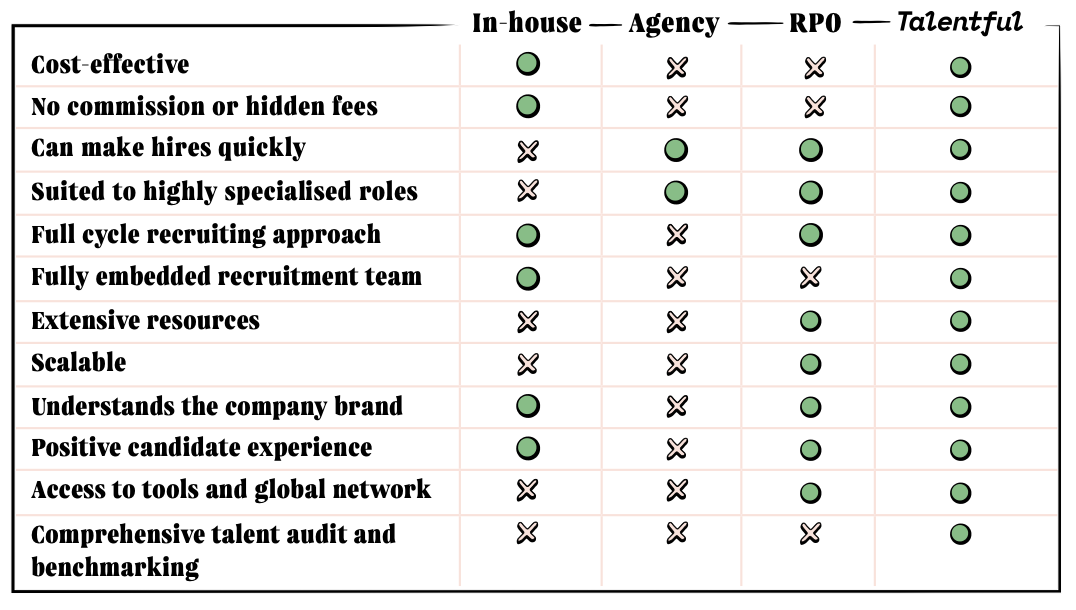3 in 5 candidates would be discouraged from applying to a company if their Glassdoor account showed negative interview reviews*
*Job Description Library, 2022, Candidate experience Statistics
of Talent Acquisition leaders say the hardest part of recruitment is screening candidates from a large applicant pool*
*Ideal, 2021, AI For Recruiting: A Definitive Guide For HR Professionals

If you need to add new talent to your team in a hurry, what do you do? For many companies, the first port of call is to get on the phone with a recruitment agency and ask them to source a suitable candidate.
Other organisations prefer to keep the entire recruitment process in-house, either because they’re small and don’t have the resources to bring in external support, or because their hiring needs are so extensive that it’s worth investing in an internal team.
Another option is to explore alternative opportunities such as recruitment process outsourcing, or RPO. This practice involves outsourcing your recruitment process (or part of it) to an external provider and working with them to not only source candidates, but also to improve and enhance your entire recruitment process.
The question is, how do you decide which method is best for your business? Every organization is different in terms of its size, budget and hiring needs, and what works well for one company won’t necessarily be the right fit for yours.
In this guide, we’ll take a deep dive into the pros and cons of in-house recruitment, agencies and RPO. At the end of this guide, you’ll be in a position to confidently make the right choice for your organization.




